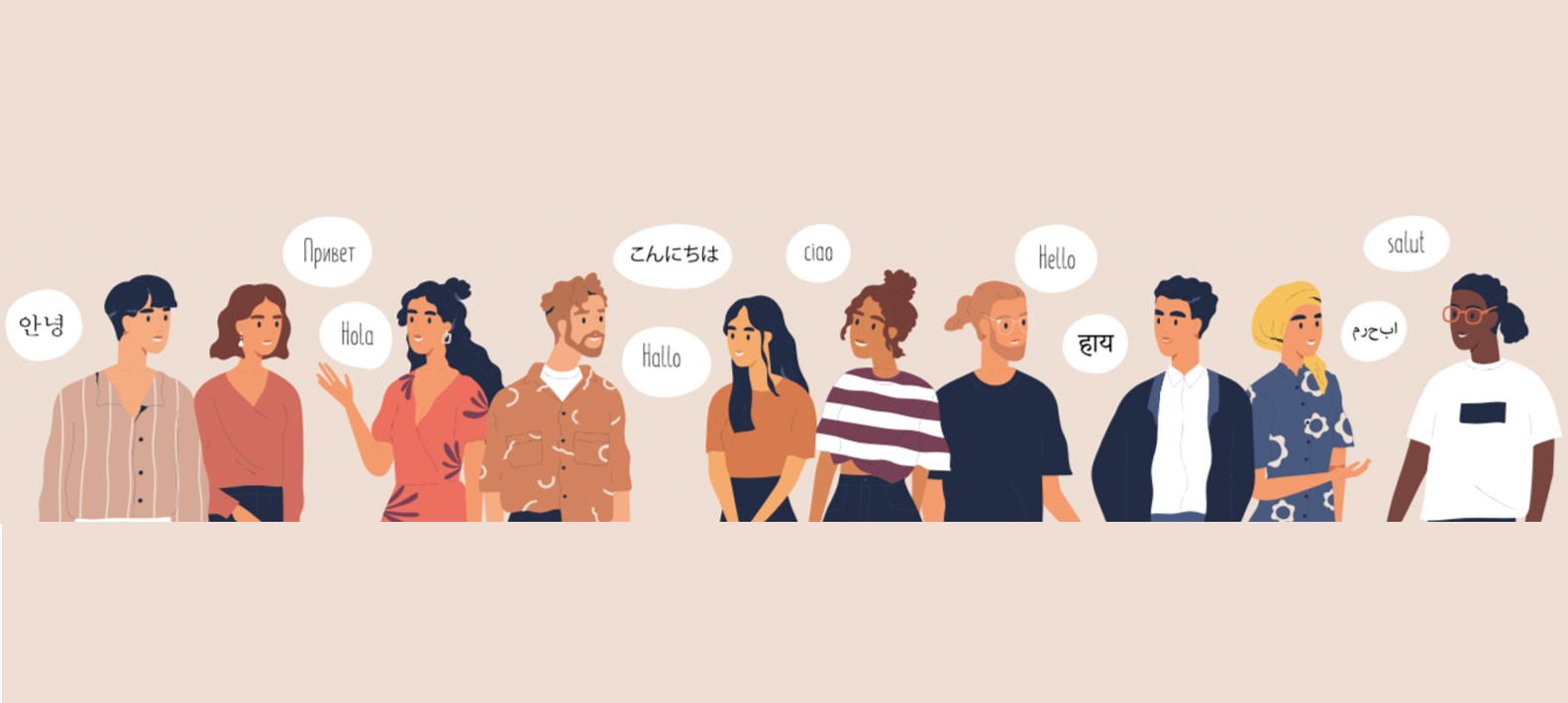It’s not just chess sets and boardgame sales that soared during the pandemic. It was all that pent-up demand for making good on new year resolutions and possibly just filling the days when so many were furloughed or stuck at home waiting for the outside world to open up. Language learning is up across the board. And Edtech entrepreneurs have upped their ante by bringing new models to the market that have ranged from innovating on Character-based associative games to learn Chinese (Chineasy) to harnessing the largest resource in the world to educate the masses, the internet.
Languages remain a differentiator, at least in Europe where the landscape is so disparate and one can often see posts for a French-speaking investment associate or more common now Mandarin skills if looking for China-related work. Learning new languages has remained a key skill that people turn to for professional development and commercial advantage. However, one challenge is investing the time required to pick up a new language to the extent that it becomes a habit and allows you to learn up to the level required to achieve your goals. Over the last decade, we have moved away from traditional learning centers to using apps like Duolingo in order to add a new set of language skills to our resumes. The infotainment also provides a great way to spend time (which we all had in spades thanks to the pandemic). Whilst the go-to way to learn languages is currently still through apps, where users spend anywhere from 10 mins to several hours a week honing their skills and trying not to lose their ‘streaks’, there are several players that have implemented new strategies to help people learn whilst they go about their daily activities.
Companies such as Fluent and Toucan are two such edtech entrants, both contributing to leveling the playing field and helping us become more connected through improved language skills. Their classroom is the web-browser and their content is all of the world’s websites.
Toucan, co-founded by Taylor Nieman, Shaun Merritt and Brandon Dietz in 2019, enables anyone to learn a new language in a proactive and immersive way. The founders knew each other prior to setting up Toucan, with Taylor and Brandan meeting when they were both working at Headspace, with Brandon on Product and Taylor working on distribution. Sean and Tayor crossed paths when they were both working at Fair.com, an automotive fintech company. A self-taught coder, who developed her skills from YouTube videos, Taylor would build MVP versions of her product ideas. Setting up her first few ventures, she learnt about product development and fundraising, as well as what kind of partnerships to enter into when starting a company. This provided a great learning ground to set up Toucan, which has now raised $3m. What is unique about this product is that unlike an app, where you are able to learn new words and put together sentences, Toucan works as a Google Chrome extension that you can install into your browser. For instance, whilst reading an article, with the Toucan plugin, you can translate sections into languages such as French and Italian!
Taylor tells ERLY that the original idea for Toucan was to build a platform as a free channel to send traffic to an app. However, upon further research, the founders discovered that a Chrome extension would allow them to build the same functionality that they would get in an app, whilst also being a more effective way to reach users. By meeting people who are using Chrome to browse the internet, Taylor states that “Toucan has eliminated a huge barrier to entry-facing apps, which require people to consistently set aside time in their day to access them.” The motivation for creating a product that is easy to use and efficient grew out of the desire of all three founders wanting to learn new skills themselves but finding it hard to take out time from their day in order to do so. Understanding how difficult it can be to create new customer habits, the trio came up with the idea for Toucan. Toucan’s engine translates words based on the users’ skills and need, as well as on the content of the visited website by the user. There is also a feature called, ‘Own The Word’, which empowers users to ‘own’ a piece of the dictionary. Taylor believes that one of the most requested words to own has been the word, “love”. The extension currently offers 7 languages with plans to add over 30 new languages for users to benefit from as the company scales. This includes launching English as a language to help non-native speakers learn. The team’s strength lies in flexibility and innovation, which Taylor tells us enabled Toucan to quickly go remote when Covid hit. The team was able to work well remotely by coming up with strategies to be productive from home. They also introduced added mental health benefits for employees and virtual game nights to keep everyone connected. The impact of the pandemic and lockdown has increased screen time amongst people, Taylor observes, as we have all binge-watched Netflix and spent countless hours on Reddit and TikTok whilst under lockdown. This has helped Toucan as well and the company managed to get another round of funding at a time when investors were cautious about their portfolios, as its proposition, of learning online, was lucrative during Covid. Toucan’s growth has been organic, with business growing 70% through word of mouth from current users. They have also partnered with some brilliant companies including Youtube, Twitch, and TikTok. The company is going strong and in February 2021 broke records with over 33m inline translations in a day. On plans for Toucan’s future, Nieman has a clear vision and is looking to expand further into education as well as into different platforms, such as mobile, audio, voice, and augmented reality.
Fluent, a competitive proposition to Toucan was co-founded by Canadians Ara Ghougassian, Yaniv Silberman, Olga Sanchís, and Gavin Dove. Their concept works in a similar way to Toucan, as Fluent is also a Chrome extension that users can add into their browser, and promotes the idea of learning through immersion. Launched in May 2020, Fluent translates selected words and phrases from any website and then allows users to engage with these words across sites, improving their learning process and solidifying their knowledge. The plugin is currently available in French and Spanish with plans to add new languages for users. Speaking on the podcast ‘Building Fires’ Ghougassian explains that when people browse forums such as Reddit, Fluent translates words and sentences into French, allowing users to ‘add language learning into their day to day habits’ and also test themselves on words.
Fluent’s Unique Selling Point is that it lets you choose the words you want to learn and can use in daily life, as opposed to learning from a predefined syllabus or learn words that are preselected for you. For instance, one of the co-founders used the plugin on Stackoverflow, an open community for coders, and was able to learn technical words like ‘bugs’ in French. On the decision to start with French, Ghougassian explains that this is one of the main languages people pick up as a secondary language, with 200m people choosing to learn French as a second language. Furthermore, French is particularly important in Canada, where it is an official language and taught across the country. With a large population of French speakers and the language is required in a professional capacity when working in Quebec and other provinces. Ghougassian is no newcomer to Edtech, having previously worked on setting up a company called Otis with current co-founder Yaniv Silberman. The site was based on Khan Academy, but with the add-on to give users recommendations whilst they were learning – a personalised learning platform. Yaniv spontaneously applied to Founders Institute – a global accelerator and to their surprise, Otis got accepted into the Montreal accelerator. The duo left Vancouver to fly to Montreal with meager savings and began to work on developing Otis further. Something to be said for building with who you know! Although this product had a lot of potential, it did not get the traction it deserved, which Ara says is a lesson he has learnt for the future and equipped him with the right tactics to promote Fluent. The company’s first tweet was a direct challenge to Duolingo! The tone of voice and how to communicate to potential customers is key! Speaking about plans for the future, Fluent’s mission is to remove the friction and difficulties of learning languages and make this fun, engaging, and accessible, so that users are able to easily achieve their personal motives for learning a language. Ghougassian speaks of how his father fled the civil war in Lebanon and built a life and career in Canada with no command over the English language. He goes on to explain that a tool like Fluent can make assimilating into a new country so much simpler for people like his father, who need to improve their language skills and equip themselves to start a new life. Fluent now has over 5000 users who have learnt over 1,000,000 new words.
Source: https://www.usefluent.co/
Browser-based language learning is a new frontier in edtech and longer-term language acquisition skills and outcomes are yet to be proven, however, the startups innovating in the space have great offerings that are worth a try. With the average user spending more time in front of a browser than a TV, it stands to reason that the technology may have a bright future in the years ahead, n’est pas? (alright, you got me. That was us and not the extension). Go on and join Toucan or Fluent today and see if the model makes a dent in your language learning goals.



